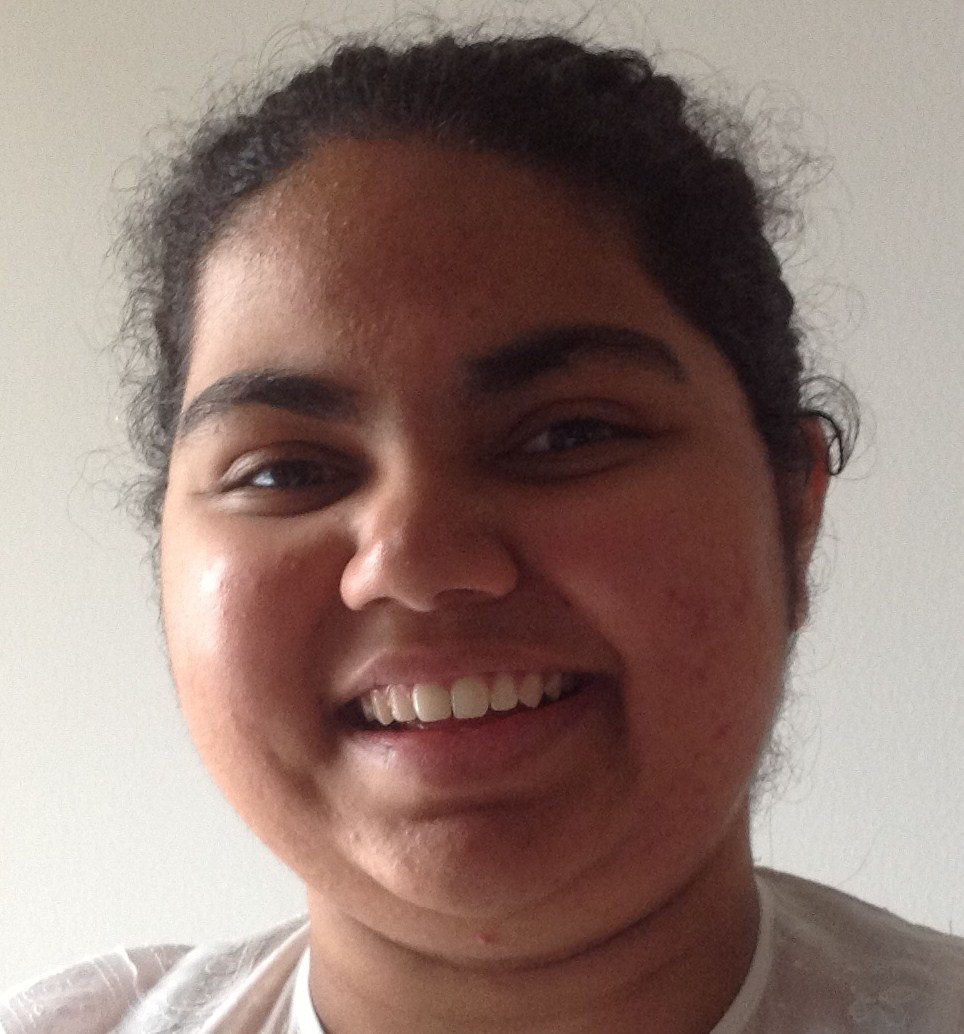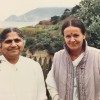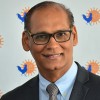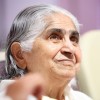 Asha is the second Brahma Kumaris United Nations Intern and Prakashmani Scholar for 2013. Asha is based in Melbourne, Australia and is currently a student at the University of Melbourne, studying a Bachelor of Arts and majoring in Politics and Asian Studies. In between her studies, Asha is also an avid public speaker and debater, and also enjoys being involved in various youth activities. Her main area of interest at the United Nations is youth and the impact of young people on society, an area which she is looking forward to exploring in the context of the UN. Asha has been a student of the Brahma Kumaris for the past 18 years.
Asha is the second Brahma Kumaris United Nations Intern and Prakashmani Scholar for 2013. Asha is based in Melbourne, Australia and is currently a student at the University of Melbourne, studying a Bachelor of Arts and majoring in Politics and Asian Studies. In between her studies, Asha is also an avid public speaker and debater, and also enjoys being involved in various youth activities. Her main area of interest at the United Nations is youth and the impact of young people on society, an area which she is looking forward to exploring in the context of the UN. Asha has been a student of the Brahma Kumaris for the past 18 years.
Personal Statement
I came into connection with the Brahma Kumaris when I was just a child. I would wander around the centre, making conversation with all the BKs and random strangers and enjoyed the attention they gave me. Meditation was a fun thing, because it involved long conversations with God and I loved to talk. As a result, I grew up to be a happy and cheerful child, content with her place in the world. As life progressed, I started my primary schooling, and I got my first taste of a different sort of world. I wasn’t always the centre of attention, so I learnt to make friends. Sometimes, there would be down days, and when mum wasn’t there for me at school, I always had Brahma Baba to hold my hand and go through subtraction with me. High school came, and I moved to a different country. Somehow, I once again found myself being the centre of attention, for being the academic nerd who took drama and made a teacher laugh. But slowly, extroversion gave way to introversion, and Brahma Baba slowly gave way to just one Baba (Shiv Baba). I enjoyed the silence of His company. I therefore matured very quickly.
Now, as I reflect, every experience I have had helped breakdown the dichotomy of life. I learned to live my life for myself. There is just the one world of spirituality and everything else revolves around it. The realisation that I am immortal and eternal, and what matters most to me can never be destroyed empowers me. The two greatest lessons life has taught me is who I am and who God is. Until today, I hold these two lessons close to my heart; allowing me to operate from a sacred space of love and respect.
ESSAY
Dadi Prakashmani – Spiritual Leadership.
It is said that when we fall in love, we develop a sense of euphoria, a general dizziness sets in, Puccini plays in the background and our heart beats like a drum in triple time, when we see ‘that stranger walk across the room’.
A strange description of love. Strange, because the first time I felt love, I experienced a sense of calm, closeness and a deep silence; an instant attraction that came from deep within, when I first gazed into the dancing eyes of Dadi Prakashmani. After catching such a hypnotic glimpse of this formidable leader, how could I not learn more about her? Since I had only seen Dadi when I was very young, I set out to find what impact she had on others. Over the course of many interviews, I found more than 76 words, which could be used to describe the personality and presence of Dadiji. All of these words had spiritual connotations, which ultimately lead to a single word: leader.
No one experience was the same as the next; each one was new and different. This also reveals the key differences between spiritual leadership and political leadership. The latter often encompasses principles such as pragmatism, diplomacy, strategic humility and people skills. Spiritual leadership encompasses a list of non-exhaustive principles such as generosity, compassion, inclusiveness, transparency and love. Spiritual leadership involves relying on the power, inspiration, and support that comes from within ourselves; political leadership involves relying on the opinions, respect and acceptance of everyone but yourself.
I remember my first direct experience of Dadi. It was in the BK headquarters at Pandav Bhawan in Mount Abu, India. Dadi was scheduled to give a class late in the morning, so she asked everyone if it would be all right to have the class out side in the courtyard. Dadi said that she enjoyed soaking in the Vitamin D from the sun! After all these years, reminiscing on this experience, I realise that this image of Dadi sitting in the sun is a very appropriate visual symbol of Dadi’s relationship with the Divine. She allowed herself to absorb and enjoy the light of the Divine, and form an intimate relationship with this Spark. It can even be said that because she knows the Father of us so well, she knows us so well too.
This fact becomes apparent from the experiences of others, when they first meet Dadi. Her vision is so pure, clean and loving that one look into them transports souls beyond the sorrows and mistakes of the past. A brother was sharing his experience of Dadi when she was giving ‘drishti’ (a sweet look which is exchanged when we meet each other). It felt as though Dadi knew who you were already, like she could read your individual DNA and completely accepted you and loved you…all in one second. It is these qualities that comfort, soothe and heal the soul. Dadi is true to her name, Prakashmani, or the jewel of light, in that her stage is constantly light because she lives totally in the present, thus making any soul who comes before her feel as if they are the most special. This quality is so different from many leaders of our day, who are always looking to analyze the why, the how and the what, and who are constantly multitasking at any given moment, never being fully present. Dadi was not only an efficient leader and administrative head; she also had the time to be everyone’s mother and grandmother in addition to all her duties.
This closeness everyone felt with Dadi also shows how open and generous Dadi was with herself. She carried out the constant charity of giving so much to everyone she met; giving herself, her time and what ever it was their heart desired. A BK youth shared her experience of Dadi whilst she was attending a children’s retreat many years ago. Dadi came into the class one day to meet the children, and she asked them, “What would everyone like to eat today?” The children gave their suggestions, “Ice-cream! Samosas! Chips!” and that would be exactly what the children ate that day. She also did this with many of the BK students who had come from overseas. It simply goes to show how far Dadi will go to satisfy the desire of each soul and the respect she had for all.
Respect and regard was perhaps one of Dadi’s most obvious virtues. Respect is often superficial in today’s world or very rarely given out. Dadi gave it so naturally because she had the same amount of respect for others, as she had for herself. Simple things, like speaking in English if you were the only English speaking person in the room (even though Dadi only knew a few words of English), things like being able to walk up to Dadi anytime of the day and give her a hug, or ask her a question. You were a part of her family before you even knew her. She would feed you from her hands. Every one of her actions was filled with the power of spirituality, every word filled with truth and every thought filled with humility. I see her as an embodiment of the Shakti form; constantly cheerful, always beautiful but undeniably powerful in all her grace and nobility.
How do all of these experiences of Dadi equate to a spiritual leadership? Spiritual leadership simply means, “being lead by the spirit ”, the sprit within all of us: the soul. It is when we consider ourselves to be souls that we are most natural. The principles that thus guide our life are all the virtues that form the original, purest nature of the soul that emerges from meditation and deep reflection. Dadi was a constant yogi, and therefore always kept her pure intention as the basis for everything she did. We use a term at the BKs when we describe our desired state of being: ‘self sovereign’. These two words perfectly describe not only spiritual leadership, but also who Dadi Prakashmani truly was. This word ‘sovereignty’ is one I often come across in my study of politics. Sovereignty is the ultimate ingredient or feature that every state (country) has in order to be classified as ‘legitimate’. Sovereignty is when the people of the state recognise the government as being fit to lead them. However, it is a fragile thing. If the people no longer have confidence or faith in a government, there is no longer sovereignty and a state fails and dissolves.
It is the same with the self. The spirit, the soul needs to feel that every fibre of its being believes that it is the true master of its life in order for there to be self sovereignty. It is a challenge to be a master of your senses and the master of your own life, let alone trying to head an ever-growing spiritual organisation. However, Dadi was t he ultimate self-sovereign, one who was truly and completely a master of the self. Many comment on her completely non-violent nature, the incredible balance she had of love and law and most importantly, how an administrative head, despite a busy schedule, was always tireless and carefree. These are signs of self-mastery. It is also through living your life as an example that you inspire others to co-operate with you, through love and respect. There is no question of commanding anything. It is such a wonderful thing.
There is an analogy used to differentiate management and leadership. Imagine there is a mountain, and at the bottom of this mountain is a group of people and their manager. Management is akin to a manager pushing the people up to the top of the mountain slowly, motivating them and going on the journey with them. This forms the majority of ‘leadership’ we see in the world today. True leadership on the other hand is when the leader has already climbed the mountain, reached the top, seen what is over the mountain top and has now gone back down the mountain to take the rest exactly where they want to go. It is only under this type of leadership, that is, under spiritual leadership, can an organisation grow from hundreds to hundreds of thousands and still maintain it s core values. Dadiji was not only a pioneer for women as leaders, but also an inspiration to leaders and the masses alike. Her value for originality, her lightness and deep love for the Divine has left a lasting impression on everyone who has heard of her. Dadi was a visionary, and her vision was that all of us find the peace and happiness that we have been looking for. And it touched us right in our hearts. Such is the power of the sovereign, the angel and the leader. Such is t he power of our beloved Dadi.





